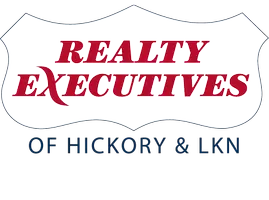The Homeowner’s Guide to Home Insurance

With so many insurance companies vying for your business, it can be difficult to feel confident with any one provider. Doing your research and getting quotes from a variety of companies is the best way to ensure that you not only pay reasonable rates but are adequately covered in the event of a loss.
What does home insurance cover?
A good coverage option will include most or all of the following:
- Dwelling coverage —this will help pay to repair or rebuild essential systems of your home, such as plumbing and electric.
- Liability insurance — if you or a family member are responsible for injuring another person or damaging someone’s property, or if an accident occurs on your property, this helps protect your assets and cover the costs that come with any lawsuit or litigation.
- Other structures — covers the cost of repairing structures on your property that are not directly attached to your house, like a garage or a shed.
- Personal property coverage — protects items like your clothing, furniture and other types of personal property, if damaged or destroyed.
- Loss of use — if you need to temporarily find alternate housing while your house is being worked on after a loss, this will help you pay for housing and living expenses during that time.
Factors that influence home insurance
The most common factors that can affect your premium are:
- The age of your home
- Your location
- Risk factors such as certain dog breeds or a swimming pool on site
- Your claims history
- Credit score
- The deductible tier you choose
- Coverage amount you select
What home insurance doesn’t cover
Consider situations that are unlikely to be covered by any insurance company and can leave you paying a lot more than you originally bargained for:
- Flooding — homeowner’s insurance policies don’t offer coverage for damage caused by weather-related flooding. If this is something you’re concerned about due to climate and flooding history in your area, look into opting into the National Flood Insurance Program.
- Earthquakes — most states offer special endorsements for earthquakes for an extra fee (the only exception being California).
- Landslides — similar to earthquake coverage, some companies will offer this protection at an extra cost, but are not legally required to.
- Wind damage — hurricane-prone areas do not offer coverage from damage caused by strong winds in their basic policies, but fee-based endorsements are available to offset the increased risk. Unfortunately, in the event of a hurricane, having wind damage but not flood damage could leave you liable for the cost from both if the damage is found to be flood-related, so consider the option to invest in both carefully.
- Maintenance neglect, including:
- Burst pipes
- Sewer backups
- Molding
- Termites
- Certain dog breeds — dogs that are typically aggressive could prevent you from being covered at all. Make sure to discuss your dogs with your insurance company.
Homeowners Insurance Discounts
The best providers offer discounts and incentives for your business. When shopping around for providers, keep the following discount opportunities in mind:
- Multiple-policy discount: Available if you have an auto, life or other type of insurance policy with the same provider.
- Protective device discount: Available if you have a home security system, fire alarm or other additional security measure.
- Claim-free discount: Available if you haven’t filed a claim over a certain period of time.
- Newly purchased or recently renovated home discount
- Early shopper discount: Available if you obtain a quote before your current policy with a different provider expires.
- Insured-to-value discount: Available when you insure up to 100% of the cost to replace your home.
Important things to keep in mind
- You may be underinsured: Dwelling coverage has limits and when purchasing an insurance policy, most people choose a coverage limit that is equal to the cost of their home. However, in the event of a catastrophe that warrants a rebuild, rebuilding your home could be much more expensive than the original purchase price. When shopping for homeowner’s insurance, opt for coverage that will cover the full cost of a rebuild.
- Certain valuables, such as heirlooms or expensive jewelry, may need their own separate endorsements. If your personal property coverage does not have a specific dollar amount, consider getting your valuables appraised and tacking on the additional coverage to ensure that you are fully reimbursed.
- Understand the difference between homeowner’s insurance and a home warranty – home insurance covers damage; home warranties cover mechanical failure. Vital systems in your home, such as HVAC or water heaters are not covered under a standard homeowner’s insurance policy.
When filing a claim
Keep an eye out to ensure that the insurance company you ultimately select as your provider has:
- Positive user reviews and high scores from reputable agencies like ConsumerReports.org and J.D. Power and Associates
- A clear, user-friendly website with multiple ways to file a claim (e.g. via phone, online, and in-person)
- 24-hour support
- Local or regional offices in the event that you would like to speak with a representative face-to-face
For more information regarding coverage options for secondary homes and rates by state, check out The Simple Dollar’s complete guide to homeowners insurance.
This post was provided by The Simple Dollar, a personal finance blog providing frugality and money management tips, as well as ideas for frugal living with high quality of life.
Categories
Recent Posts











